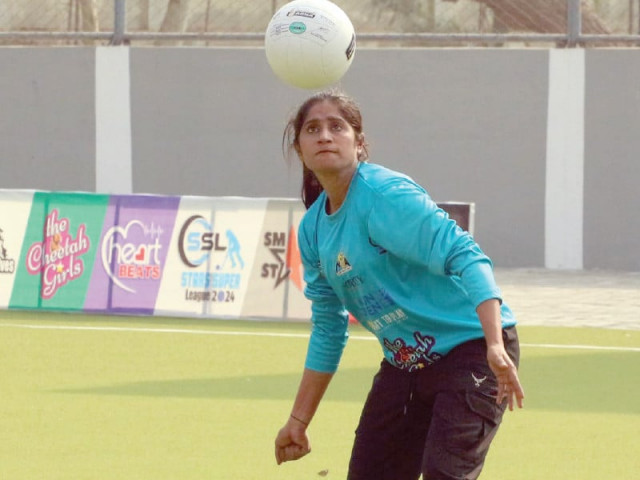Extreme heat stifles women’s sports in Sindh
Rising temperatures yet another barrier for girls who aim to stay active amidst inadequate training places

Aqsa Shabbir, a keen field hockey player, is tired and frustrated because she can no longer train during the day and can’t sleep at night amid a brutal heatwave, and fears that she will not play well in a tournament at the end of June.
The 17-year-old student, who lives in Jacobabad city of Sindh, already had to overcome many obstacles like many other girls in Pakistan’s smaller cities, where exercising in public is frowned upon, and the heatwave is making things harder.
Two years ago, Jacobabad was named the hottest city on earth after temperatures reached 51°Celsius. “We cannot keep waiting for the weather to get better – it won’t,” Shabbir told the Thomson Reuters Foundation by phone from Jacobabad.
Rising temperatures are one more barrier for women and girls who want to stay active in a country where there are few training spaces available to them, apart from private sports clubs reserved for the wealthy.
A 2022 study found that the main obstacles to participating in sport in Pakistan are “religious and cultural limitations, a lack of permission from parents, and a lack of sports facilities and equipment”. Now add extreme heat, linked to climate change, to the list.
Shabbir is a member of the Star Women’s Sports Academy in Jacobabad, the only women’s sports club in the city of nearly 300,000 people. The girls have started training later in the day in a bid to beat the heat but parents are unhappy with their daughters returning home late on their own.
Shabbir is trying to look on the bright side ahead of her important tournament in the neighbouring Sukkur district. “Who knows, we may outdo other teams from other cities with relatively lower temperatures, being more acclimatised to extreme heat.”



















COMMENTS
Comments are moderated and generally will be posted if they are on-topic and not abusive.
For more information, please see our Comments FAQ